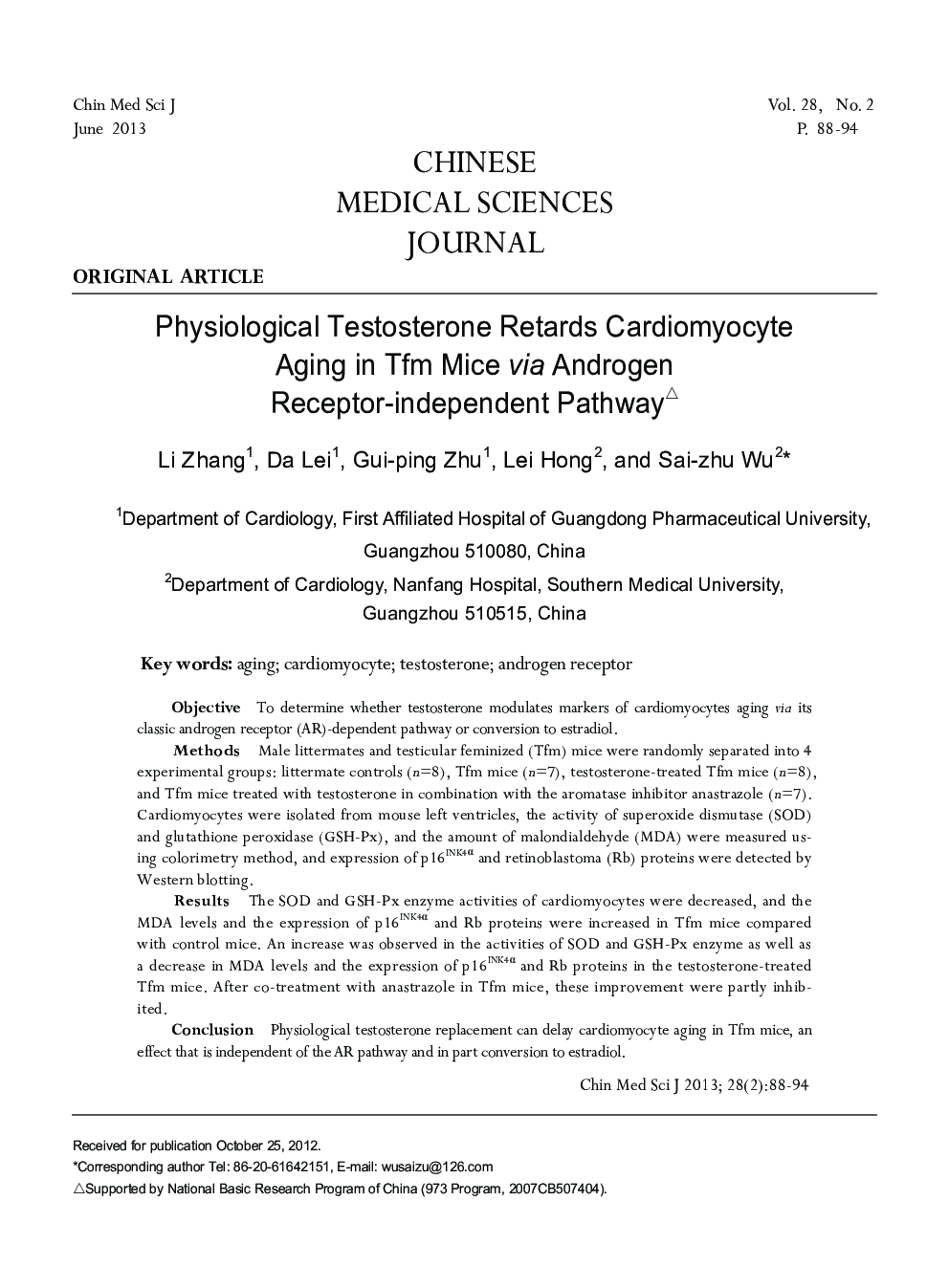| کد مقاله | کد نشریه | سال انتشار | مقاله انگلیسی | نسخه تمام متن |
|---|---|---|---|---|
| 3459544 | 1231173 | 2013 | 7 صفحه PDF | دانلود رایگان |

ObjectiveTo determine whether testosterone modulates markers of cardiomyocytes aging via its classic androgen receptor (AR)-dependent pathway or conversion to estradiol.MethodsMale littermates and testicular feminized (Tfm) mice were randomly separated into 4 experimental groups: littermate controls (n=8), Tfm mice (n=7), testosterone-treated Tfm mice (n=8), and Tfm mice treated with testosterone in combination with the aromatase inhibitor anastrazole (n=7). Cardiomyocytes were isolated from mouse left ventricles, the activity of superoxide dismutase (SOD) and glutathione peroxidase (GSH-Px), and the amount of malondialdehyde (MDA) were measured using colorimetry method, and expression of p16INK4α and retinoblastoma (Rb) proteins were detected by Western blotting.ResultsThe SOD and GSH-Px enzyme activities of cardiomyocytes were decreased, and the MDA levels and the expression of p16INK4α and Rb proteins were increased in Tfm mice compared with control mice. An increase was observed in the activities of SOD and GSH-Px enzyme as well as a decrease in MDA levels and the expression of p16INK4α and Rb proteins in the testosterone-treated Tfm mice. After co-treatment with anastrazole in Tfm mice, these improvement were partly inhibited.ConclusionPhysiological testosterone replacement can delay cardiomyocyte aging in Tfm mice, an effect that is independent of the AR pathway and in part conversion to estradiol.
Journal: Chinese Medical Sciences Journal - Volume 28, Issue 2, June 2013, Pages 88-94